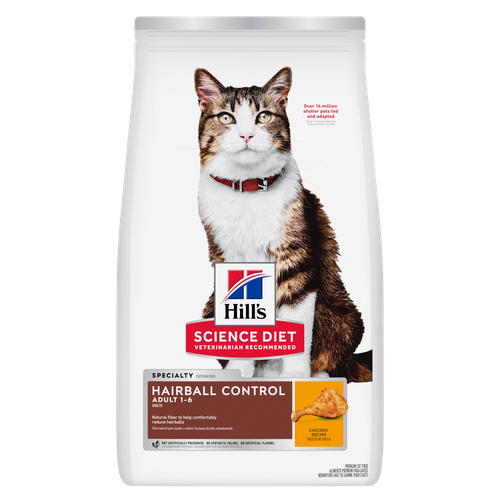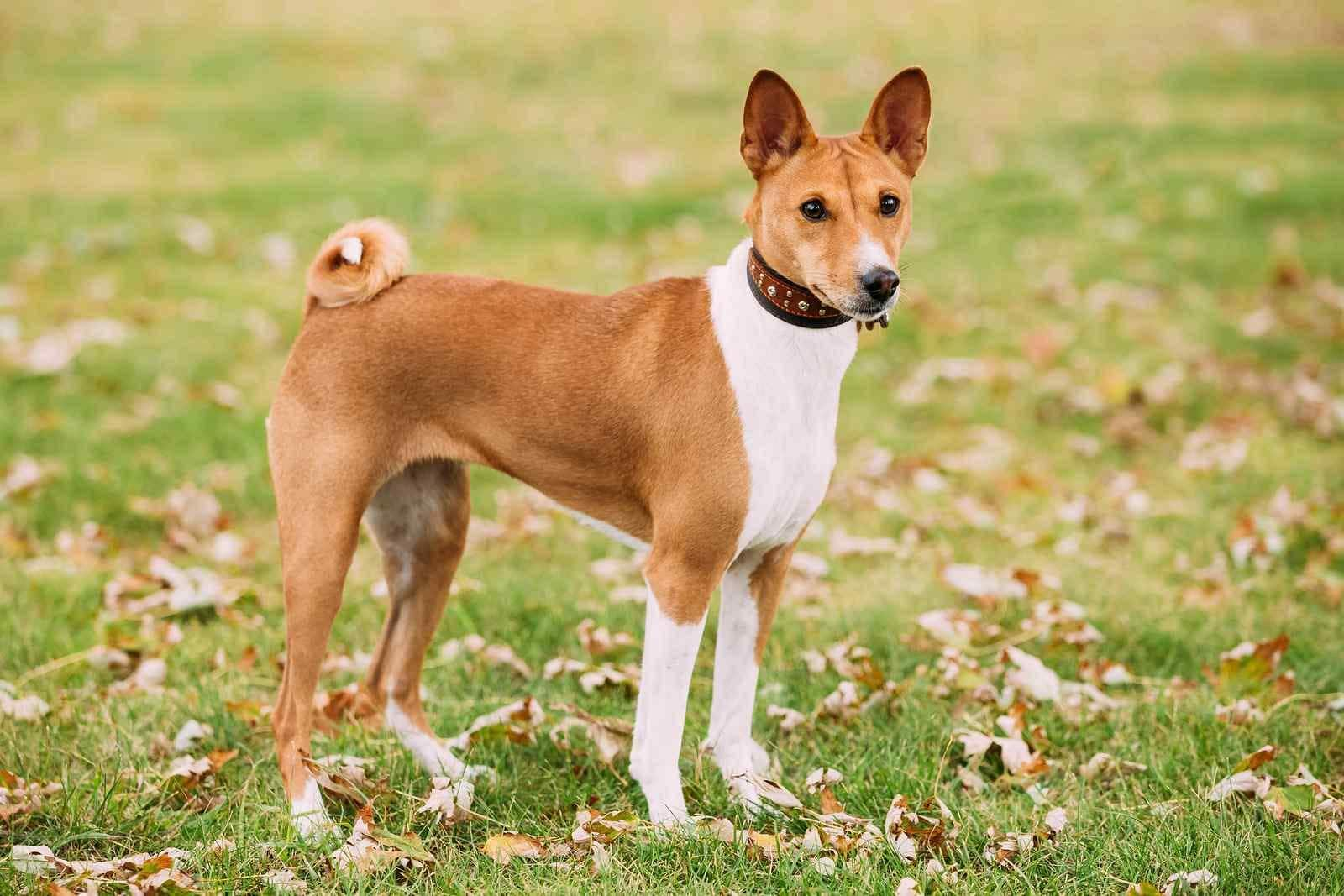
-
Find the right food for your petTake this quiz to see which food may be the best for your furry friend.Find the right food for your petTake this quiz to see which food may be the best for your furry friend.Health CategoryFeatured products
 Adult Perfect Weight & Joint Support Chicken & Brown Rice Recipe Dog Food
Adult Perfect Weight & Joint Support Chicken & Brown Rice Recipe Dog FoodThis weight management and mobility support dog food was created with Hill’s unique understanding of the biology of overweight dogs.
Shop Now Adult Perfect Digestion Chicken, Barley & Whole Oats Recipe Dog Food
Adult Perfect Digestion Chicken, Barley & Whole Oats Recipe Dog FoodScience Diet's breakthrough nutrition supports ultimate digestive well-being & healthy microbiome
Shop Now Hill's Science Diet Adult Healthy Mobility Large Breed Chicken Meal, Barley & Brown Rice Recipe Dog Food
Hill's Science Diet Adult Healthy Mobility Large Breed Chicken Meal, Barley & Brown Rice Recipe Dog FoodAdvanced nutrition shown to support joint health and improve mobility
Shop NowFeatured products Adult Hairball Control Chicken Recipe Cat Food
Adult Hairball Control Chicken Recipe Cat FoodNatural fibre comfortably reduces hairballs
Shop Now Adult Healthy Cuisine Roasted Chicken & Rice Medley Cat Food
Adult Healthy Cuisine Roasted Chicken & Rice Medley Cat FoodDelicious roasted chicken and rice in a mouthwatering sauce
Shop Now Adult Perfect Digestion Chicken, Barley & Whole Oats Recipe Cat Food
Adult Perfect Digestion Chicken, Barley & Whole Oats Recipe Cat FoodHill's Science Diet's breakthrough nutrition supports ultimate digestive well-being & healthy microbiome
Shop Now -
DogCat
- Cat Tips & Articles
-
Health Category
- Weight
- Skin & Food Sensitivities
- Urinary
- Digestive
- Kidney
- Dental
- Serious Illness
-
Life Stage
- Kitten Nutrition
- Adult Nutrition
Featured articles Tips on How to Store Your Dog or Cat Food Properly
Tips on How to Store Your Dog or Cat Food ProperlyWhere you store your cat and dog food can make a big difference in the quality and freshness once it is opened. Here are some common questions and recommendations for optimal storage for all of Hill’s dry and canned cat and dog food.
Read More Water
WaterWater is the most important nutrient of all and essential for life. Animals can lose almost all their fat and half their protein and still survive, but if they lose 15% of their water, it will mean death.
Read More Fun Ideas for Kids and Pets This Summer
Fun Ideas for Kids and Pets This SummerOutdoor summer activities with your dog or cat can be fun for kids, too. Learn how they also teach kids responsibility & creates a bond with their pet.
Read More -


Have you noticed that your dog doesn't bark like other dogs in the neighbourhood? For some dog parents, having a dog that doesn't bark might be something they can only dream about. But for others, it might be cause for concern.
Dogs bark for a lot of different reasons. In addition to warning intruders to stay away or alerting you to a potential threat, a dog might also bark because he's frustrated or bored, or because he simply wants your attention. Dogs also sometimes bark to express emotions such as fear, anger or excitement.
There are almost as many reasons why some dogs don't bark as there are reasons for barking. Here are some of the most common possibilities why your dog doesn't bark.
Breed Disposition
 Some breeds, such as the Basenji, possess quiet temperaments that aren't geared toward a lot of barking. This might not mean that they never bark, or that they don't express themselves in other ways, such as howling or whining. But in a general sense, these dogs simply don't bark much.
Some breeds, such as the Basenji, possess quiet temperaments that aren't geared toward a lot of barking. This might not mean that they never bark, or that they don't express themselves in other ways, such as howling or whining. But in a general sense, these dogs simply don't bark much.
Personality
While breed temperament can play a role, dogs are individuals, each with a unique set of personality traits. Some dogs are simply too laid back or friendly to bother with barking, while others may not like the sound of their own barking.
Honeymoon Phase
If your quiet dog is newly adopted, it could be that he's too shy to bark. Often, dogs adopted from a shelter or rescue tend to be on their best behavior during the first days or even weeks following adoption, says Cuteness. If this is the case, your dog may begin to bark more as he becomes more comfortable in his new surroundings.


Tasty Tips
Vocal Stress or Health Issues
If you have a dog that has suddenly stopped barking or appears to be trying to bark without making any noise, it could be that too much barking has strained his voice. Recent surgery is another reason your dog might be more silent than normal, or he simply might not be feeling well. However, if your pooch suddenly goes silent, it could also be indicative of a health issue. You should contact your veterinarian to discuss possible causes.
Training or Debarking
If you're dealing with a shelter dog or one whose history is unknown, it's possible that his previous owners had him debarked, which is a surgical procedure that involves trimming the vocal chords to reduce the volume. Debarked dogs are still capable of barking, they simply can't do so loudly. This is a procedure that we would not normally recommend — training should be your best course of action for teaching a dog not to bark. Another possibility is that your dog was previously trained not to bark, or that he was forced to wear a bark collar that suppressed his barking and broke him of the habit. Sadly, it could also be that your pup suffered abuse that made him fearful of barking. In such cases, with love and time, your dog might eventually get over his fear and go back to barking normally.
Ultimately, you know your dog best, and you're in the best position to decide whether being able to say "my dog doesn't bark" is bragging rights or a cause for alarm. If you're concerned about your dog's silence, talk to your vet to rule out medical or psychological issues. But if it turns out your dog is simply the strong, silent type, relax and count your blessings!


Jean Marie Bauhaus is a pet parent, pet blogger, and novelist from Tulsa, Oklahoma, where she usually writes under the supervision of a lapful of fur babies.
Related products

This weight management and mobility support dog food was created with Hill’s unique understanding of the biology of overweight dogs.

Advanced nutrition shown to support joint health and improve mobility

Science Diet's breakthrough nutrition supports ultimate digestive well-being & healthy microbiome

Hill's Science Diet Sensitive Stomach & Skin Large Breed dry dog food is gentle on stomachs while nourishing skin & promoting a lustrous coat. In a delicious large bite size for large breed dogs.
Related articles

Large breeds of dogs have different nutritional needs than smaller breeds. Learn more about the specific needs of large and giant breeds.

Learn what you can feed your pregnant or nursing dog to keep her and her new pups healthy.

Learn about choosing the right dog food to help ensure your mature older dog will receive the correct balance of nutrition.

Learn how today's wet dog food blends have gotten a face lift, and how you'll provide your dog the nutrition he needs in the form he loves.

Put your dog on a diet without them knowing
Our low calorie formula helps you control your dog's weight. It's packed with high-quality protein for building lean muscles, and made with purposeful ingredients for a flavorful, nutritious meal. Clinically proven antioxidants, Vitamin C+E, help promote a healthy immune system.
Put your dog on a diet without them knowing
Our low calorie formula helps you control your dog's weight. It's packed with high-quality protein for building lean muscles, and made with purposeful ingredients for a flavorful, nutritious meal. Clinically proven antioxidants, Vitamin C+E, help promote a healthy immune system.

